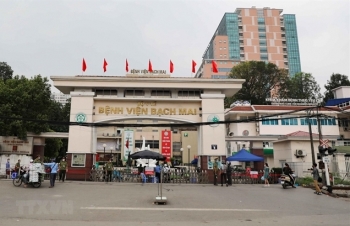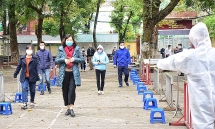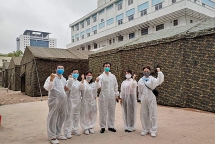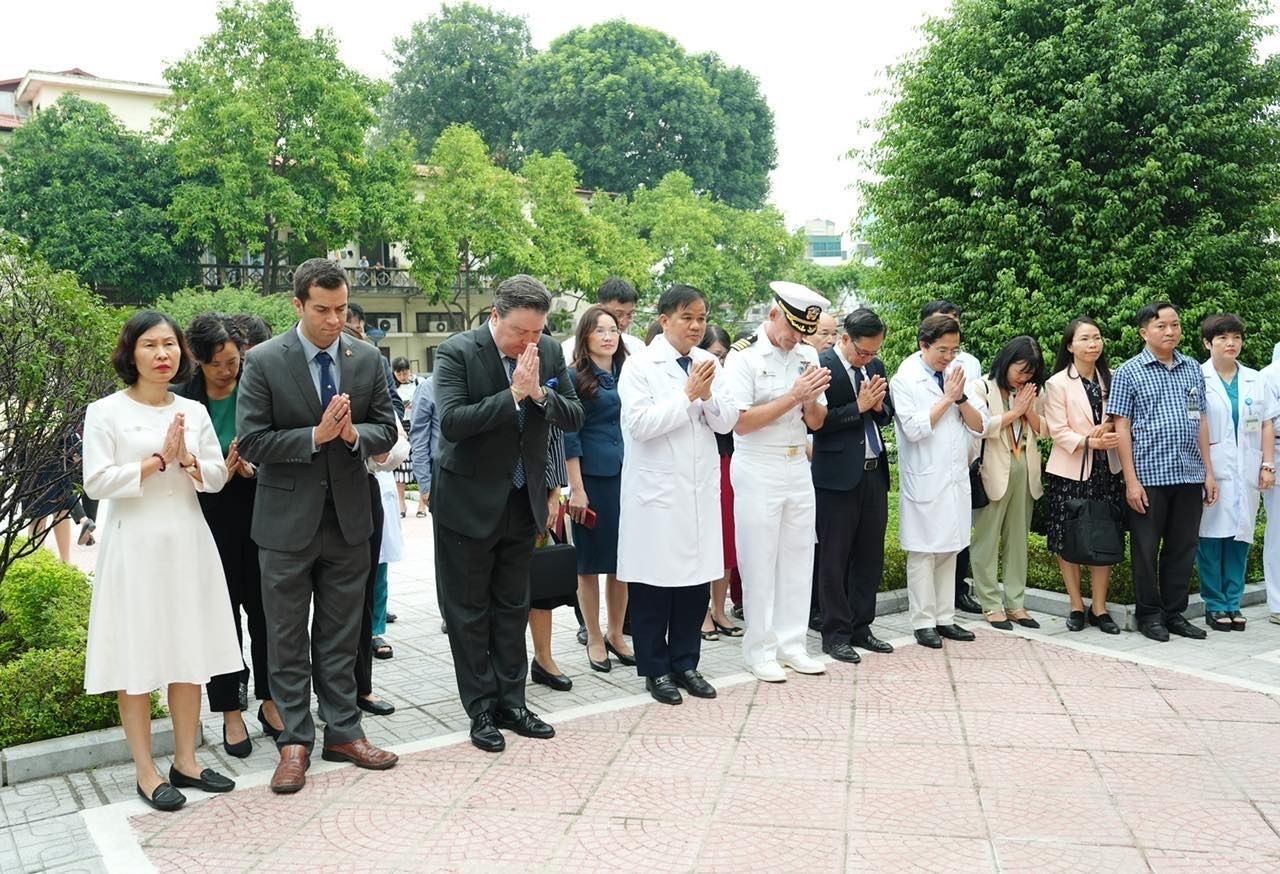National Bach Mai Hospital launches best healthcare services for all
| Hanoi's Bach Mai Hospital to reduce bed sharing rate | |
| Hanoi first rapid mass testing for Covid-19 implementation started | |
| Bach Mai Hospital to set up field hospital after its lockdown |
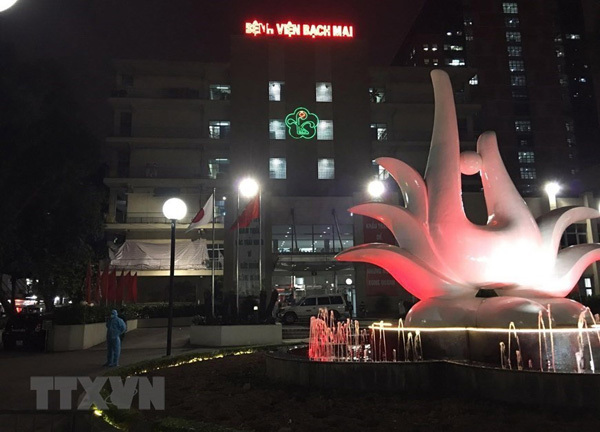 |
| Bach Mai Hospital. (Illustrative image. – Photo : VNA) |
It means all patients would be treated fairly in public healthcare facilities.
Of course, the plan was applauded by many people, especially those on low incomes, because they thought it was a way to wipe out the rich-poor gap in public health facilities and ensure all patients were treated fairly.
In prestigious public hospitals like Bach Mai, overloading of patients is common, meaning a lot of patients have to share beds, with some even having to lie in hospital corridors.
Those who want to have their own beds have to pay extra.
To deal with this, hospitals set up “serviced beds” or “beds on demand”, according to the VNA.
Hospitals expanded most rooms and departments, while doctors and nurses were willing to narrow their offices to have as many “serviced beds” as possible, because many high-income patients want to pay for more convenience and high-quality service in public hospitals.
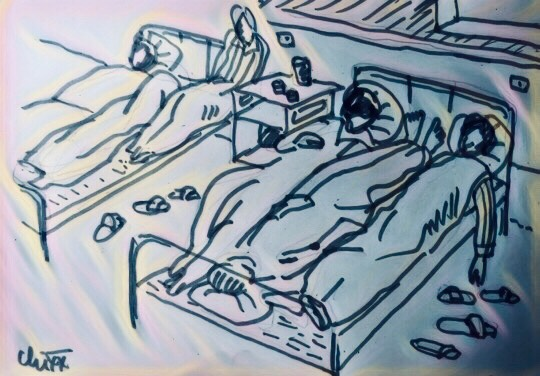 |
| Illustration photo on VNS |
In contrast to the well-furnished private rooms for the rich, there are crowded community rooms with dozens of beds which were shared by two or three patients.
Many people believed that hospitals had focused too much on investing in the service to collect more money from rich patients while the quality of treatment and beds for patients with medical insurance was not guaranteed.
This caused concern among patients.
Rich and poor arguments
Many people, especially those on low incomes, said all patients must be treated equally in public hospitals. Hospitals are where places for medical treatment, not for vacation. If someone had a lot of money, they should go to private hospitals where they would be treated with convenience.
“I was very happy to know that Bach Mai would wipe out the serviced beds,” said Le Thu Tra, a 50-year-old worker living in Hanoi’s Thanh Xuan District.
“I felt sorry for myself when I had to share bed with another patient while in serviced departments, one patient could have a private room with an air-conditioner,” Tra said.
“It presented inequality in medical treatment at public hospitals,” the female worker said.
Hoang Tien Hung, 50, a resident of Hoang Mai District, said: “As a guard of a residential building, I could never afford serviced beds in hospitals. So, I have no way to share the bed with other patients who really want to stay comfortable.”, reported the VNS.
“Why don’t rich people go to private hospitals where they can enjoy convenience?”, Hung said.
People thought that if there are no serviced beds in public hospitals, there will be better services for all.
However, the middle- and high-income people thought different.
“I could afford private hospitals, but I preferred public hospitals such as Bach Mai or Viet Duc. Because they had more experienced and high-qualified doctors than in private hospitals,” said Nguyen Ngoc Mai, a businesswoman.
“So, I found that public hospitals providing serviced beds was reasonable. The service brought profits which were used to invest in medical facilities and improved quality of healthcare services and health workers’ qualification,” Mai said.
“This benefited both the hospital and patients. So why would the serviced beds be wiped out?” the businesswoman said.
“I did not feel like I was stealing any chances from anyone,” she said.
Meanwhile, Pham Van Minh, a manager of a foreign-invested company in Hanoi expressed his opinion that: “I trust doctors in public hospitals. This way is not fair to the rich.”
“Perhaps wiping out serviced beds in public hospitals would take chances of receiving the best medical treatment for high-income persons. The decision seemed to be in line with the market economic rules,” he said.
Best service for all
According to leaders of Bach Mai Hospital, the plan was essential to narrow rich-and-poor gaps in the public healthcare facilities and ensure equality in healthcare access of all people.
“When the patient bed-sharing situation is finished, all patients would be offered similar service. It is equality,” said Doctor Duong Duc Hung, deputy director of Bach Mai Hospital.
“Once beds on demand no longer exist, we will offer a wide range of healthcare packages which prioritise patients’ benefits and treatment quality,” the doctor said.
Speaking with Kinh Tế & Đô Thị (Economy and City) newspaper, Dr. Tran Van Phuc from Saint Paul Hospital in Hanoi, said that to realise the plan, Bach Mai Hospital must improve all services of medical examination and treatment to attract more patients as well as increase professional expertise and economic effects.
“This was an inevitable and necessary thing that should have been done a long time ago,” said Phuc.
“More patients mean more profit. It should not offer more high-cost serviced beds which took opportunities of fair treatment from other patients,” said the doctor.
It is true that socialising education and health care should not mean narrowing the chances of accessing public facilities of vulnerable groups.
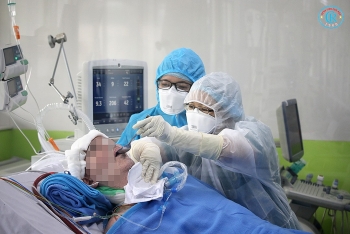 | JICA continues to deploy USD 700.000 aid packages for Vietnamese hospitals According to the Japan International Cooperation Agency (JICA), to support Vietnam cope with the COVID-19 epidemic, whilst being based on the request of assistance from ... |
 | Hospitality among slowest industries in Vietnam to fully recover after COVID-19 Market researcher newspaper Savills considered hospitality among the first COVID-19 striken industries in Vietnam and will likely be among the slowest to fully recover. |
 | Hospitality industry unlikely to recover until next year due to its sharp decline The rapid spread of COVID-19 around the globe has caused significant damage to several industries, including tourism, which has been one of the hardest hit. ... |
Recommended
 Viet's Home
Viet's Home
Lai Chau National Assembly, People's Council Delegates Hold Dialogue with Children
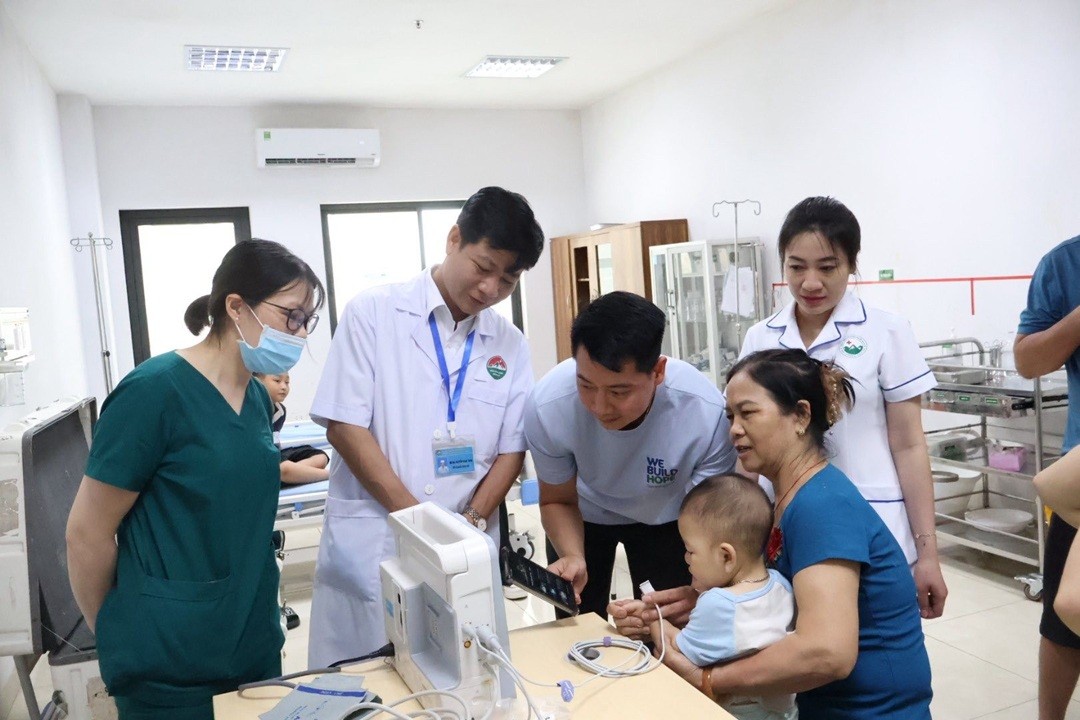 Viet's Home
Viet's Home
24 Children with Disabilities in Northern Provinces Received Free Surgery
 Viet's Home
Viet's Home
World Vision Promotes Comprehensive Nutritional Care for Vietnamese Children
 Viet's Home
Viet's Home
Hanoi, South Africa Strengthens People-to-people Exchanges, Expands Multi-sector Cooperation
 Viet's Home
Viet's Home
Hue City to Raise Awareness on Mine Accident Prevention
 Focus
Focus
Vietnam Leaves Imprints on the World Peacekeeping Map
 Viet's Home
Viet's Home
“Global Vietnamese Singing 2025” - Connecting Hearts Longing for Homeland
 Viet's Home
Viet's Home

